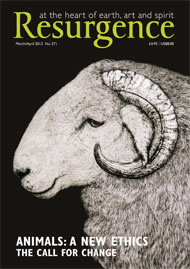The Centre for Animals and Social Justice (CASJ) is a new think tank for animals and social justice founded by academics and animal advocates and launched with a seminar on Animals and Public Policy at the London School of Economics in June 2011.
The CASJ believes that how we treat other sentient animals matters morally because, like us, they are individuals who can experience joy and suffering and have an interest in surviving and pursuing their own vital interests. As sentient beings whose lives are affected profoundly by the action and inaction of individuals, businesses and states, animals are a proper concern of social justice.
Issues such as badger culling, wild animals in circuses, and the new EU Directive on animal experimentation show the increasing political salience of animal protection. But public attitudes towards animals are generally more compassionate and enlightened than those expressed in actual behaviour, in industry practices and in public policy – which currently cause widespread and extensive harm to millions of animals in the UK every year. There is an even wider gap between the compelling philosophical case for animal rights and the reality of animals’ moral and political status.
The founding of the CASJ heralds a new chapter in the history of our relationship with other animals. It harnesses growing academic interest in animal ethics and politics, and produces the knowledge and advocacy essential both to persuading society to respect animals and to translating ethical aspirations into effective animal protection. As a public policy-focused research centre, the IASJ occupies a unique niche both in academia and in the animal protection movement.
Most academic work on human-animal relationships is pitched at an ideal ethical level, and it is currently failing to make a significant difference to human impacts on other animal species. On the other hand, a great deal of activism focuses on personal transformation rather than on the social structures that influence personal behaviour, and hence also animal wellbeing.
The CASJ consciously seeks to have a practical impact by concentrating on real social and political obstacles to advancing animal protection. At the heart of this mission is a commitment to high-quality research that not only advances knowledge of animal protection public policy, but also boosts the credibility and impact of the animal protection cause.
Britain is said to be a nation of animal lovers, but when it comes to animal protection there is a huge democratic deficit in the UK. Policy processes that affect the welfare of hundreds of millions of animals are almost always dominated by the industries that make them suffer, such as intensive agriculture and the pharmaceutical industry. The most vital interests of animals – and the views of the public – tend to be ignored by government.
We believe that the most urgent task facing the cause of animal protection is to understand and change these elitist policy processes.
My own research suggests that the following structural political changes are essential to democratise policymaking and tackle the current obstacles to animal protection:
1. We need a formal legal/political status for animals, based on their qualities as sentient beings with intrinsic value.
2. We need national and international government institutions dedicated to advancing animal protection and representing animals’ interests.
3. We need national and international policy strategies to improve animal welfare.
Our priority programmes will involve academic research and public policy engagement encompassing these three fields, under the general heading Embedding Animal Protection in Public Policy.
The CASJ occupies a vital niche in both academia and the animal protection movement. We can provide the expertise necessary to identify the root causes of animal protection’s lack of traction in public policy and develop a strategy to overcome these fundamental obstacles; a ‘road map’ to achieving the paradigm change in society and government that will make significant, sustainable advances for animal protection possible.
At the same time, our credibility as an academic research organisation can help to improve the position of animal protection in the opinion of the public, media and policymakers – an essential milestone in the journey to the just and compassionate society we seek.






